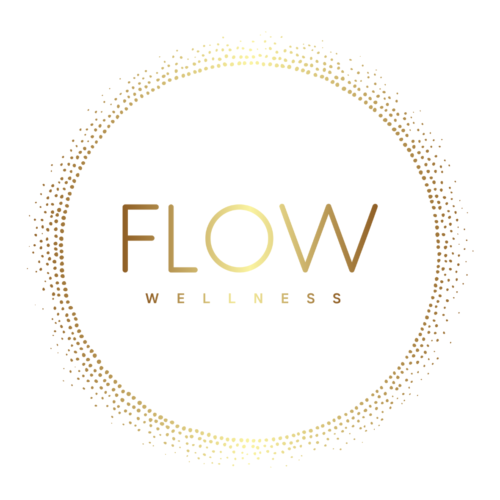B Complex IV Infusion is becoming increasingly popular for its ability to boost energy, support metabolic processes, and provide essential nutrients to the body. It is an innovative solution that can help people with a wide range of health issues, from fatigue and stress to mood disorders and chronic conditions.
B Complex Vitamins are made up of eight essential nutrients (thiamine, riboflavin, niacin, pantothenic acid, pyridoxine, biotin, folate, and cobalamin). The B vitamins work together to help the body in many ways: converting food into energy, maintaining proper brain function and mental clarity as well as aiding digestion and balancing hormones. B Vitamins also have powerful anti-inflammatory properties which can help reduce symptoms associated with autoimmune diseases.
B Complex IV Infusions provide a higher dose of these eight vital vitamins than what you can get through diet or supplements alone. IV infusion allows the vitamins to be quickly absorbed into the bloodstream so they are more efficiently used by your body’s cells. This means that you will experience faster results compared to other forms of supplementation. For example, people who suffer from fatigue may notice a boost in energy levels after just one infusion session!
Overall, B Complex IV infusions offer multiple health benefits that help improve overall quality of life and well-being. If you’re struggling with any health issue related to stress or deficiency of certain vital nutrients, consider trying B Complex IV Infusions today – the ultimate solution for healthy living!

Learn more about the roles of each crucial B vitamin, all included in B-Complex IV supplement:
Thiamine, also known as vitamin B1, plays pivotal roles in maintaining optimal health and bodily functions. Primarily involved in energy metabolism, thiamine is a cofactor for key enzymes that help convert carbohydrates into energy, ensuring the proper functioning of cells and tissues. It also contributes to nerve function by supporting the synthesis of neurotransmitters, aiding in the transmission of signals within the nervous system. Thiamine is essential for the metabolism of amino acids and fatty acids, making it crucial for overall growth, development, and the maintenance of cardiovascular health. Deficiency in thiamine can lead to conditions such as beriberi and Wernicke-Korsakoff syndrome, which can have serious neurological and cardiovascular consequences. Therefore, adequate intake of thiamine through diet or supplementation is vital for overall well-being.6
Riboflavin, also known as vitamin B2, is a water-soluble vitamin essential for various physiological processes in the human body. It plays a crucial role in energy production by participating in the conversion of carbohydrates, fats, and proteins into ATP, the body’s primary energy currency. Riboflavin is also vital for maintaining healthy skin, eyes, and nerve function, as well as for the production of red blood cells. It acts as a coenzyme in numerous enzymatic reactions, supporting overall growth, development, and the proper functioning of the body’s cells.
Niacin, also known as vitamin B3, is an essential water-soluble nutrient vital for various physiological processes in the human body. It plays a crucial role in converting food into energy by participating in metabolic reactions, such as glycolysis and the citric acid cycle. Niacin is essential for maintaining healthy skin, nerves, and digestive system function. Additionally, it can help lower cholesterol levels and has been used as a therapeutic agent to treat certain cardiovascular conditions. A deficiency in niacin can lead to a condition called pellagra, characterized by skin rashes, digestive issues, and neurological symptoms.
Pantothenic acid, also known as vitamin B5, is a water-soluble vitamin that is crucial for various metabolic processes in the human body. It is an essential component of coenzyme A (CoA), which plays a central role in the metabolism of carbohydrates, fats, and proteins. CoA is necessary for the production of energy, the synthesis of fatty acids, and the metabolism of various molecules involved in cellular function. A deficiency in pantothenic acid is rare but can lead to symptoms such as fatigue, numbness, and tingling in the hands and feet, as well as gastrointestinal disturbances.
Biotin, also known as vitamin B7 or vitamin H, is a water-soluble vitamin essential for various metabolic processes in the human body. It plays a vital role in the metabolism of carbohydrates, fats, and proteins by acting as a coenzyme that helps enzymes function properly. Biotin is particularly important for the synthesis of fatty acids, amino acids, and glucose, all of which are essential for energy production and maintaining overall health. Additionally, biotin is crucial for the health of skin, hair, and nails. While biotin deficiency is rare, it can lead to symptoms like hair loss, skin rashes, and neurological problems.
Folate, also known as vitamin B9, is a water-soluble vitamin crucial for various essential functions in the human body. It plays a pivotal role in DNA synthesis, repair, and methylation, making it vital for cell division and growth. Folate is especially important during pregnancy, as it helps prevent neural tube defects in developing fetuses. Additionally, it is involved in the metabolism of amino acids and is essential for the formation of red blood cells. Folate deficiency can lead to anemia and is essential for proper cellular function and overall health.
Cobalamin, also known as vitamin B12, is a water-soluble vitamin with a pivotal role in various essential functions within the human body. It is crucial for the production of red blood cells, DNA synthesis, and the proper functioning of the nervous system. Cobalamin cannot be synthesized by the human body and must be obtained through dietary sources or through supplements. Deficiency in vitamin B12 can lead to a range of health issues, including anemia, fatigue, neurological problems, and cognitive decline. Therefore, ensuring an adequate intake of cobalamin is vital for overall health and well-being, particularly for vegetarians and vegans who may need to rely on fortified foods or supplements to meet their B12 requirements.
Please note IV and IM treatments are not FDA approved and not intended to treat any disease.
